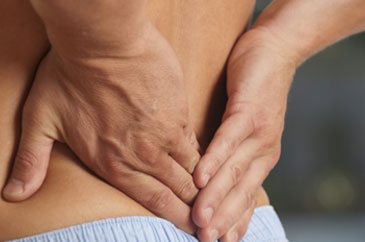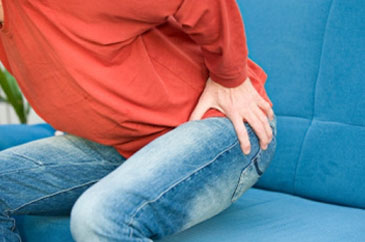HEADACHES

Dr. Ehle has treatment options that provide headache relief. Chronic headaches and migraines affect many Americans. The often debilitating pain affects their families and jobs. The primary causes are structural (spinal nerves and muscles), chemical (hormones, allergies and blood sugar) and emotional (muscle tension and stress hormones). The most common approach to relieve a headache is OTC pain relievers. This is ok for the occasional headache but, when you need to take pain relievers often, a better solution is due. To effectively treat the headache, there must be an accurate diagnosis. Dr. Ehle’s approach is to try to find the source of the headache, and to use natural solutions for a more permanent resolution. A neck adjustment, aligning the vertebra in the neck and upper back, relieves most headaches. However, the muscles and tissues of the neck and shoulders can develop ‘trigger points’ from long term stress and trauma. Trigger points are nodules that develop in a muscle, and can be extremely painful. Trigger points can refer pain up into the head and neck causing debilitating headaches. Acupuncture and massage do a fantastic job at resolving headaches from trigger points. Headaches of chemical origin need to be assessed to determine if it is a deficiency (too little of something) or a toxicity (too much of a substance… often self inflicted). Stress related headaches require assessing the source of the stress. Stress has two main sources: 1) How we respond to the various situations/surroundings we find ourselves in, and 2) chemical stress resulting from our choices of foods, our environment, and how our immune system responds to the chemical stressors. With a thorough history and physical exam, including a neuromuscular response (NMR) exam which challenges the body with various chemical/hormone/food stressors, Dr. Ehle is often able to identify the offending chemical stressor that is producing the headache, and can then provide a more complete solution.
Read More
Neck Pain Treatment
Neck pain affects us all at some time. We often use OTC pain relievers to get us through the episode. Neck pain can be much deeper than a brief episode of muscle tension. Arthritis, disc degeneration/bulge, nerve impingement, heart and gallbladder disease are just a few of the conditions that can produce neck pain. Adjusting the neck and upper back with attention to the acupuncture meridians running through the neck will help or resolve most neck issues. Seldom is there a deeper need for surgery. Dr. Ehle can find ways to help your neck problem no matter how sensitive you are about having your neck worked on. He can use other techniques such as massage therapy, acupuncture, cold laser therapy, electrical muscle stimulation, natural muscle relaxers and light instrument adjusting techniques such as the Activator to find you relief from neck pain and spasms.
Read More
Shoulder Pain Treatment

Shoulder and arm pain can be due to over use, trauma, or arthritis, but often it arises from nerve impingement in the neck. Nerves that make the shoulder and arm work come from the brain, and exit the lower part of the neck travelling to the shoulder, down the arm, and through the wrist to the fingers. There are about 15 muscles that make the shoulder function. If painting, digging, or a new exercise program suddenly makes your shoulder start to hurt it could have easily been a latent weakness in one of the muscles that make up shoulder biomechanics. That is why Dr. Ehle will individually test each muscle to find the source of the malfunction in the shoulder. He will then diagnose the reason the specific muscles are not working like they should. Other issues could be an acupuncture meridian that is out of balance, organ weakness (liver/gall bladder problems often express as shoulder problems), nutritional deficiencies, or trigger points within muscles. Deeper problems can be a labial and/or muscle tear, or arthritis which may require x-ray, ultrasound, or MRI imaging.
Read More
Lower Back Treatment
Low Back Pain is a leading cause of seeking medical care. You could be suffering from an acute problem from yard work, or a more chronic problem that has been with you much of your life. Dr. Ehle has a variety of natural tools that can offer some help to an ailing back. He has 25 years experience treating lower back pain utilizing manipulation, acupuncture, massage and decompression therapies to bring relief. If there is chronic lower back pain, often there is a deeper structural issue precipitating the lower back pain. Bulging discs, disc degeneration, arthritis, muscle weakness, vertebra and/or pelvis/sacrum being out of place can all contribute to lower back pain and dysfunction. Chiropractic spinal manipulation is very effective for treating low back pain. Combining manipulation with acupuncture and decompression therapies is a successful solution to chronic lower back pain.
Read More
HIP & LEG PAIN
Hip pain and leg pain can be crippling. The source of the pain can be degeneration in the spine, hip and/or knee. Most often the pain is due to sciatic nerve impingement/inflammation. Sciatic nerve pain is infamous…often called psychotic nerve pain because almost no medication makes it feel better and it vexes everyday life.
Our Approach to treating hip pain
Dr. Ehle utilizes muscle testing and AK procedures to accurately diagnose the branch of the sciatic nerve that is causing the problem allowing him to be very specific in treating the cause of the impingement and pain. In addition he uses acupuncture techniques which also relieves the pain from sciatica. Massaging the muscles and fascia of the low back, sacrum and legs assists in reducing the muscular tensions that contribute to sciatic pain.
Read More
Knee Pain Treatment

Knee pain is deeply concerning to athletes. The only way a knee performs well is to have all the musculature around the knee performing well. It is the muscles not the ligaments that hold the knee together while walking or running. If you fall and injure the knee you may think the trauma to the knee is what is causing all the pain. Often during a fall the force of the fall is transmitted to the pelvis and low back impairing the mechanics and the nerves from the spine. This will weaken the muscles around the knee due to the nerve deficit producing a weak painful knee. This results in pain from the fall and pain due to nerve/muscle weakness as a result of the impact of the fall.
How Dr. Ehle treat knee pain
Dr. Ehle uses his AK skills to determine if there is any muscle weakness around the knee that is the cause of instability and pain. There are more than a dozen muscles that are intimately involved with the function and stability of the knee. To an athlete, this is of extremely important to prevent injury. Many sports injuries are simply a product of overloading an area where a weakness exists. The body amazingly will recruit all the muscles around a weak area to prevent injury but during an athletic event the system often gets stretched beyond its ability to recruit other stabilizers. Dr. Ehle is able to test the muscles to better understand if the muscle is working in all ranges of motion and during various activities.
Read More
Heel & Foot Pain Treatment
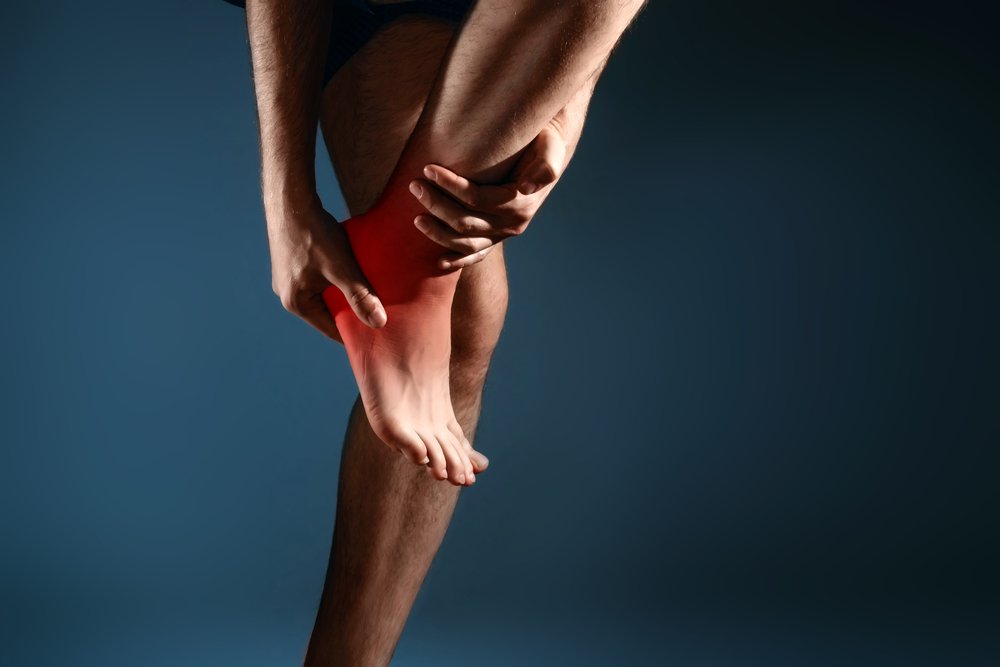
Heel pain or plantar fascitis can sure be an aggravating way to start the day. Stepping down on the floor and having a searing pain run through the foot is not the way to produce a morning smile. The feet are the foundation of the body. If the feet are not working well it is hard for the knees, pelvis and spine to be mechanically sound. The feet are highly dependent on the integrity of the muscles of the feet and lower leg to insure proper function and prevent injury and strain. Heel pain is a classic example of what happens when poor biomechanics and spinal instability produce pain with no known cause. Poor mechanics of the feet produces pelvic and lumbar instability. When that occurs the nerves of the spine become irritated or worse become impinged producing a mild sciatica. It is a quiet sciatica when you do not feel the pain of sciatic inflammation. Pain or no pain of the low back and leg, the muscles of the foot need to be tested to see if /the foot is working well. Most often the sciatic nerve is a component of the heel pain.
Read More
Wrist Pain
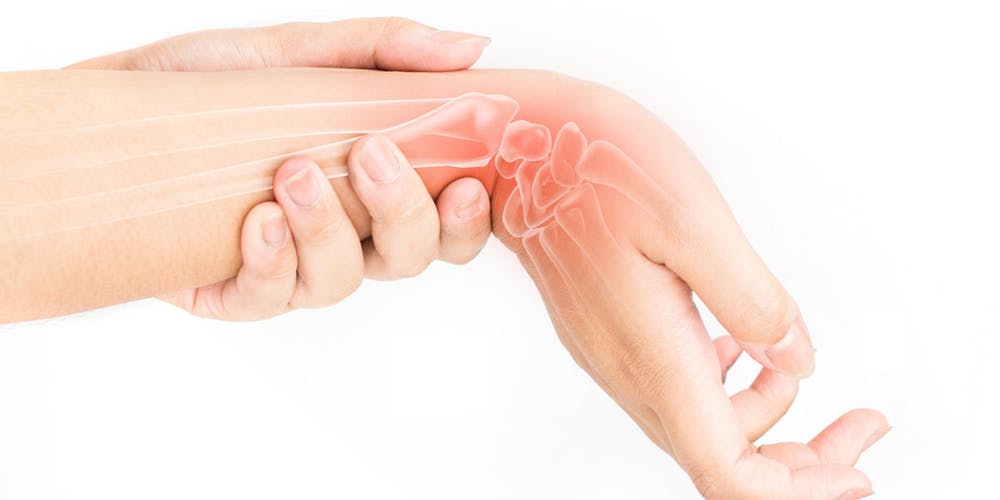
What is wrist pain with hand numbness?
Wrist pain accompanied by hand numbness is often associated with carpal tunnel syndrome, which can stem from various causes. Misalignment of the wrist bones can compress the median nerve and lead to these symptoms. Additionally, conditions such as wrist arthritis, thyroid disorders, water retention, or nerve compression in the neck can also result in wrist and hand pain. Dr. Ehle specializes in effectively treating a wide range of underlying causes of wrist and hand pain. If your condition does not show prompt improvement, he will refer you to the appropriate healthcare professional for further evaluation and care.
What are the treatment options for wrist pain?
Treatment options for carpal tunnel syndrome and similar conditions may include:
- Chiropractic adjustments: Gentle adjustments to the affected wrist and hand may help relieve pressure on the median nerve and reduce symptoms.
- Splinting: Wearing a wrist splint or brace can help keep the wrist in a neutral position, reducing strain on the median nerve and providing support.
- Therapeutic exercises: Specific exercises and stretches can improve wrist strength, flexibility, and overall function.
- Ergonomic modifications: Assessing and modifying your workspace or daily activities to ensure proper ergonomics can help alleviate symptoms and prevent further aggravation.
- Lifestyle changes: Making adjustments to your daily habits, such as taking breaks during repetitive activities and practicing proper hand and wrist posture, can help alleviate symptoms and prevent recurrence.
- Other modalities: Chiropractors may also incorporate other therapies such as ultrasound, electrical stimulation, or cold laser therapy to aid in pain relief and tissue healing.
Read More
DISC BULGE
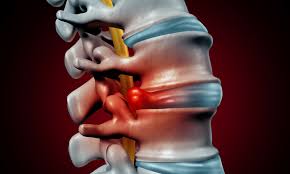
Disc herniation, degeneration, and injuries can cause excruciating pain, whether they affect the neck or the lower back. There are numerous manifestations of pain that can be attributed to disc problems. What may initially seem like simple low back pain could actually be caused by a disc bulge or inflammation. Similarly, leg pain, knee pain, foot pain, groin pain, hip pain, or thigh pain can all indicate a disc issue, such as a bulging, inflamed, or herniated disc.
Neck pain, arm pain, or a sensation akin to a stuck screwdriver between your shoulder blades can also be attributed to a disc problem in the neck. It is crucial to select treatment methods carefully to avoid exacerbating the pain while providing relief. Dr. Ehle employs spinal decompression therapy in conjunction with targeted manual therapies to alleviate impingement and alleviate pain. With over 25 years of experience in treating acute and chronic disc problems, Dr. Ehle utilizes AK muscle testing to isolate the impinged nerve responsible for weakness and pain. This allows for specific treatment targeting the precise level of the spine causing the issue. The treatment protocol is chosen to prioritize relief and minimize irritation to the inflamed nerve. Acupuncture alone often reduces pain stemming from nerve impingement. Many patients who initially seek acupuncture (possibly hesitant about spinal manipulation) find the relief they seek through this approach to nerve pain.
How do you treat a disc problem?
Dr. Ehle favors a comprehensive approach that incorporates spinal decompression to alleviate compressed nerves, spinal manipulation to gently reduce impingement by restoring proper biomechanical function to the vertebrae. Additionally, acupuncture, massage, and other manual therapies may be employed to reduce fascial and muscle impingement and diminish inflammation along the path of the affected nerve. This holistic approach significantly enhances the success rate of pain relief and restoration of overall health.
Read More
Fibromyalgia

What is Fibromyalgia?
Fibromyalgia is the diagnosis given for generalized chronic muscle pain. Not long ago many in the medical community did not think this problem existed. Now, the diagnosis is ubiquitous… it is the common place diagnosis given to muscle pain, it is the arthritis of muscles. The problem is… what do you do for it, how do you fix it? Fibromyalgia is not easily understood. The reason being, not many understand biochemistry, much less nutrition… the fundamental way every chemical reaction takes place in the body.
Dr. Ehle approaches fibromyalgia in 2 ways
The first is through the use of acupuncture (studies have shown a great deal of relief with the use of acupuncture), light manipulation, and cold laser therapy to offer some immediate band-aid relief. Secondly, to set a course for long term health and vitality that will day by day offer to restore the picture of health that you once had.
Fibromyalgia and chronic fatigue are simply two sides of the same coin. Fatigue makes every day a struggle and fibromyalgia a misery. Waking up tired, and forcing yourself to get up and grind out the day, gets really old. Collapsing after work, when the family needs time and attention, is one of the greatest tolls of fatigue. In most cases of fatigue the problem is either a deficiency or toxicity. The challenge is to figure out which it is. Dr. Ehle starts with evaluating blood studies to make sure no obvious problem has been overlooked. Often the blood studies are completely normal, and yet you still feel absolutely miserable. This is where Neuromuscular Response Testing (NMR) may reveal some insights. NMR challenges help to discern organ and biochemical pathways that are under stress. NMR testing is non-invasive, and very easy to perform; making it very desirable in a clinical setting. During NMR testing, the body is challenged with various nutrients, chemicals, foods and hormones so the subtle excess or deficiencies can be detected. The mechanism that causes sore chronic muscle pain also produces chronic fatigue. There are a variety of issues that can produce the outcome of chronic fatigue and fibromyalgia (CFFM). Thyroid dysfunction, chronic fungal infection, gut dysbiosis, and chronic nutrient deficiency are some of the most common problems faced by a person with CFFM.
Read More



 Back
Back


